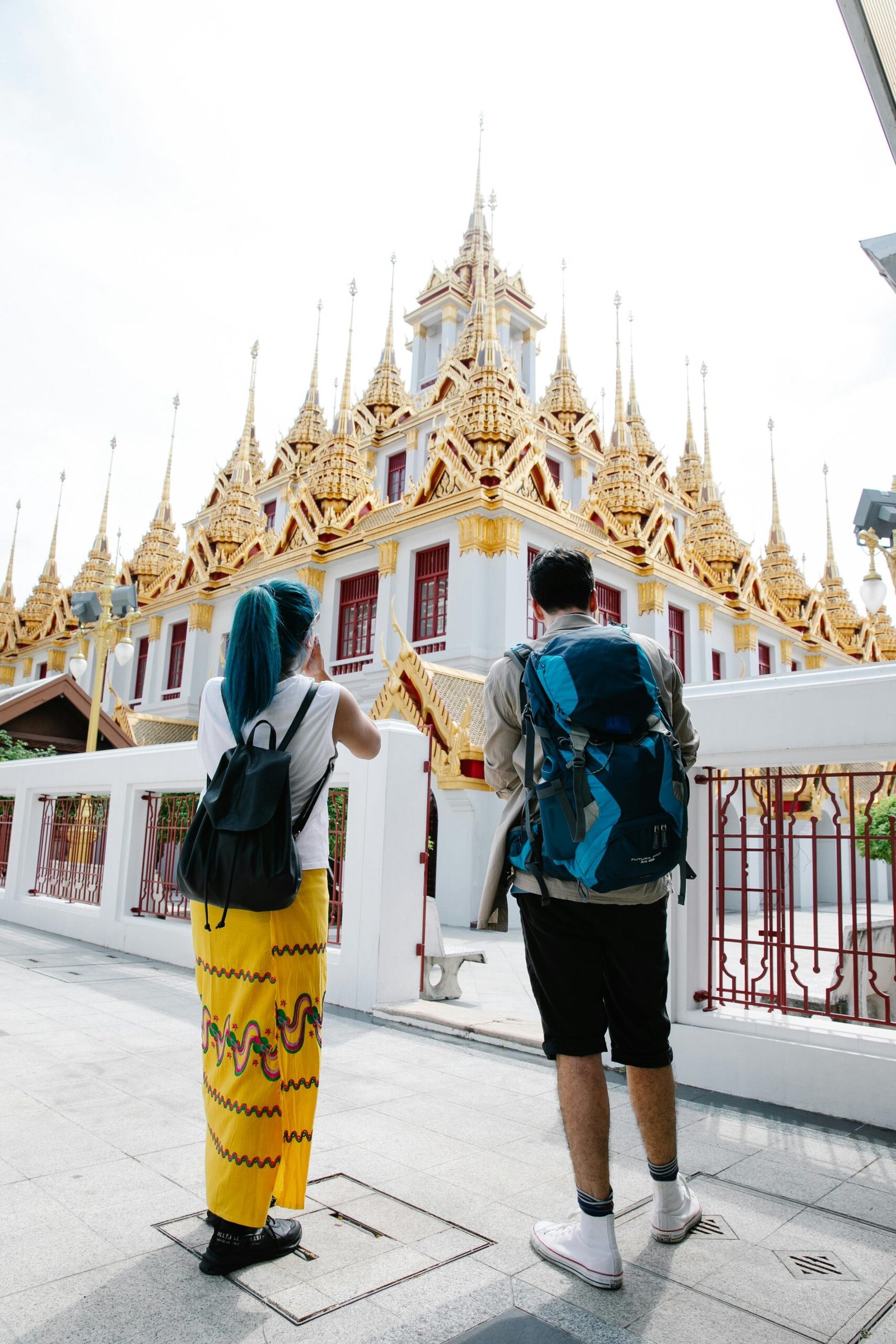Thailand, often called the “Land of Smiles,” offers rich culture, beautiful landscapes, and warm hospitality. Travelers can explore lively cities, serene beaches, and ancient temples. However, understanding Thai customs will make your trip smoother and more enjoyable. To help you navigate local traditions and avoid common mistakes, here’s a guide to ensure a respectful and enriching visit. Thai Government’s Tourism Authority
1. Greet with a “Wai”
Thais use the Wai to greet, show respect, and say thank you. When visiting Thailand, you’ll notice this gesture often. To perform the Wai, press your palms together and bow your head slightly. This is especially important when interacting with elders or people in authority. Additionally, when someone greets you with a Wai, it’s polite to return the gesture as a sign of respect.
How to Do a Wai:
- Press your palms together at chest level.
- Slightly bow your head.
- The higher your hands and deeper your bow, the more respect you show.
2. Avoid Touching People’s Heads
In Thailand, the head is considered the most sacred part of the body. Thus, touching someone’s head, even as a joke, is highly inappropriate. If you happen to touch someone’s head accidentally, apologize immediately to show respect for their beliefs.
3. Dress Modestly at Temples
Temples are sacred spaces in Thailand, and therefore visitors should dress conservatively. Both men and women are expected to cover their shoulders and knees when visiting temples. Wearing loose, modest clothing is not only respectful but also practical in the hot weather.
Dress Code for Temples:
- Cover shoulders and knees.
- Wear loose-fitting clothing.
- Some temples offer sarongs if needed.
4. Don’t Point with Your Feet
Thais consider the feet the lowest and dirtiest part of the body. As such, it’s disrespectful to point your feet at people, objects, or religious symbols. Whenever seated, be mindful to keep your feet tucked away and avoid pointing them towards others.
Proper Sitting:
- Tuck your feet under your body.
- Avoid placing your feet on chairs or other elevated surfaces.
5. Remove Your Shoes Before Entering
In many homes, temples, and some shops, removing your shoes is expected. Therefore, if you see shoes outside a door, it’s a clear sign that you should follow suit. This simple act helps maintain cleanliness and shows respect for the home or sacred space you’re entering.
6. Stay Calm in Public
Thais value kreng jai, which means considering others’ feelings. Public displays of anger or frustration are frowned upon and seen as rude. Instead of reacting emotionally in stressful situations, stay calm, and use a smile to ease tensions.
How to Handle Frustrations:
- Smile and remain polite.
- Speak calmly if a problem arises.
7. Respect the Monarchy
Thais hold their monarchy in high regard. It’s crucial to remember that speaking negatively about the royal family or showing disrespect can lead to serious legal consequences. For example, you are expected to stand during the national anthem, which is played in public spaces like cinemas. In addition, avoid any criticism of the monarchy, as it is both culturally and legally inappropriate.
8. Limit Public Displays of Affection
Thais are conservative when it comes to public affection. While holding hands is generally acceptable, more intimate displays such as kissing or hugging should be avoided in public. These gestures are considered private and should be reserved for moments away from the public eye.
9. Use Both Hands for Giving and Receiving
When handing or receiving items, it’s polite to use both hands. However, if you need to use one hand, touching your left hand to your right elbow is a polite alternative. This gesture shows respect, especially when interacting with elders.
10. Avoid Pointing with Your Finger
Pointing at people or things with your finger is considered impolite. Instead of using your finger, gesture with an open hand to avoid offending anyone.
11. Bargain Politely in Markets
Bargaining in Thai markets can be an enjoyable experience, but always keep the interaction light and friendly. It’s important to remember that a smile goes a long way. Moreover, if a vendor refuses your offer, thank them politely and move on.
Tips for Bargaining:
- Offer a lower price with a smile.
- Don’t get frustrated if your offer is rejected.
12. Step Over Thresholds
In Thai culture, thresholds, particularly at temples, are considered sacred. Thus, step over them rather than directly on them when entering or exiting a temple or someone’s home.
13. Smile Often
Smiling is a big part of Thai culture. In fact, it is often used to express friendliness, politeness, and even to diffuse tense situations. By smiling often, you’ll find that interactions with locals are more pleasant, and you’ll feel more in tune with the cultural norms.
14. Address Complaints Privately
Thais generally avoid confrontation. If you need to address an issue or complaint, do so privately and with kindness. Public criticism can cause embarrassment and may damage relationships, so always remain considerate.
15. Follow Religious Customs
Respecting temple customs is essential in Thailand. For instance, women should avoid touching monks or handing items directly to them. Instead, place items nearby for monks to pick up. Additionally, always walk behind monks, not in front, and avoid sitting higher than they do.
16. Dispose of Litter Properly
Thais take pride in their environment. Therefore, always dispose of litter in trash bins and avoid littering in public spaces. Keep in mind that certain areas, particularly tourist spots, have strict fines for littering.




